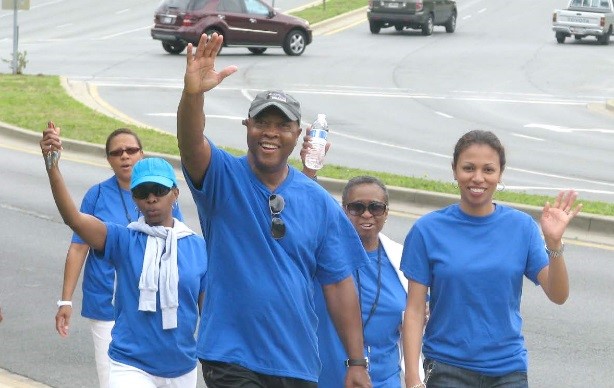Ruffin Retires from Federal Service After Almost 24 Years

NIMHD Director Dr. John Ruffin
“A shock to the system,” said one colleague on learning of Dr. John Ruffin’s retirement from federal service and as director of the National Institute on Minority Health and Health Disparities, having admired his passion, commitment and tenacity for so many years to make minority health and health disparities a national priority. And the question many ask is how did he do it?
“The ultimate measure of a man is not where he stands in times of comfort and convenience, but in times of challenge and controversy.” These words by Dr. Martin Luther King Jr., and his personal faith are the mantra that have guided Ruffin in leading the development of a national health disparities enterprise from an office to a center and now an institute. A visionary leader, he established an infrastructure for minority health and health disparities that has benefitted numerous individuals, communities, institutions and organizations around the globe.
In August 1990, Ruffin arrived as the first NIH associate director for minority programs. No stranger to NIH, having been a beneficiary of the MARC and MBRS programs and having served on many peer review panels and workgroups for the National Institute of General Medical Sciences under the late Dr. Ruth Kirschstein, he understood the issues and came with a plan. He would oversee coordination of minority programs for NIH with a budget of $1.5 million under the auspices of the Office of Minority Programs.
His first objective was to create a fact-finding team, which he asked to develop an action plan for OMP.
“I wanted to hear from the people. And I gave the team the charge to convene town hall meetings in communities around the country to find out what is it that we are not doing, that we should be doing,” said Ruffin. This resulted in 13 recommendations that would later help shape the research agenda for the Office of Research on Minority Health (ORMH) and a platform on which NIH’s research agenda for minority health and health disparities would continue to build.
“The name change [to ORMH] was meaningful, because people did not understand the purpose of the office,” Ruffin recalls. “The calls I was receiving were from people who had equal employment opportunity grievances and thought this was the purpose of the OMP. Adding the words ‘Research on Minority Health’ more clearly aligned ORMH with the agency’s mission.”
Shortly thereafter, minority health issues began to gain a foothold within NIH when the late Dr. Bernadine Healy, then NIH director, created the Minority Health Initiative with a budget of $45 million. This became the launch pad for long-term collaborative relationships with other NIH institutes, centers and offices.
ORMH did not have grant-funding authority and worked with the ICs to fund or develop minority research, training, capacity-building and outreach projects. Programs such as the NIGMS Bridges to the Future and the Fogarty International Center’s Minority International Research Training program transferred to the National Center on Minority Health and Health Disparities after it gained center status.
After intense debate, demonstrations and briefings in the late 1990s, NCMHD was established by Congress in 2000. “The creation of the NCMHD quickly changed the landscape,” Ruffin reflected. “The issue was no longer just about the health of minority populations, but other underserved populations, such as lowincome and rural residents. We now had grant-funding authority with congressionally mandated programs, the authority to coordinate minority health and health disparities for all of NIH and to develop a comprehensive NIH-wide strategic plan for health disparities.”
In 2010, the Affordable Care Act created NIMHD. “The transition to institute status reflected the importance that Congress and the American people place on studying health disparities with an even greater intensity. It also enhanced John’s ability to make the strongest case possible for investing in this area of research,” said NIH director Dr. Francis Collins.
Ruffin also co-led the Federal Collaboration on Health Disparities Research, a coalition of 14 departments of the executive branch that leverages resources, expertise and initiatives around environmental, housing, justice, transportation and other issues related to health disparities.

Ruffin (c) enjoys running and walking and looks forward to participating in marathons.
Today, NIMHD’s budget has increased to about $260 million. Ruffin’s accomplishments are many, but as he tells his constituency and colleagues, ”I am proud of all that we have accomplished together over almost a quarter century, but sadly we have not yet reached our destination. There is still much unfinished business that we have to accomplish as a nation to achieve health equity.”
He reminded his staff that NIMHD’s accomplishments are their accomplishments. “You are a part of the puzzle, and if just one piece of the puzzle is missing, then it’s not complete. It means that regardless of your role in this institute, your contributions are critical in completing the puzzle.”
An avid jogger, Ruffin looks forward to participating in more local marathons, spending more time gardening and enjoying his family.

















